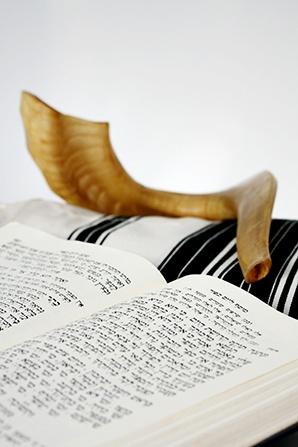
Nevertheless, Yom Kippur is a day set aside to focus exclusively on admitting one’s failings, repenting and resolving how to do better.
Often misunderstood is that Yom Kippur only atones for transgressions against God. Trespasses against fellow human beings require direct apology and forgiveness. Harm to another also violates against God’s law, but the Almighty can only forgive the aspect of violating God’s teaching. The actual hurt can only be forgiven by the one harmed.
Yom Kippur is traditionally observed through countless hours of synagogue worship aimed at spiritual cleansing. Nearly all the prayers and confessions are phrased in the plural. In a community everyone shares a degree of responsibility for the failings of others by insufficiently supporting each other in avoiding shortcomings. We are indeed our brother’s keeper.
Yom Kippur is characterized famously by refraining from any food or drink from sunset until nightfall the next day (as all Jewish days begin at night). Because of worship requirements, the actual fast lasts closer to 25 or 26 hours. Yet, whenever health is a concern, food or drink is not only permitted, but required.
Other traditional prohibitions for the day include refraining from bathing, anointing (i.e. ancient cosmetics), sexual relations, and wearing leather shoes (which were considered luxurious, particularly in earlier times). The idea is that by removing our usual physical concerns, we can focus completely on our spiritual needs.
I like to tell my congregants the following story.
An arrogant hiker visiting Israel ignored directions given to him. Following several predictably wrong turns he found himself lost in the Negev desert. After hours of wandering, desperate for water, he saw something in the distance. He walked toward the object only to find a little old man at a small stand in the middle of nowhere selling neckties emblazoned with the words “Repent! God forgives.”
The lost hiker asked, “Do you have any water?” He replied, “I don’t have any water, but would you like to buy a necktie? They’re only 5 Israeli sheqels.”
The hiker screamed, “I don’t need your stupid ties! I just need water!”
“Okay” said the old man. “I recommend getting a tie, but you can find water over that hill about 5 kilometers. There’s a really nice restaurant there. But, don’t take too long, you don’t want them to close on you.”
A couple hours later the hiker staggered back. The old man asked, “Is everything okay?” “What do you think?” gasped the hiker. “Your brother won’t let me in without a tie.”
Too often we are so focused on our material needs and desires that we don’t think we need anything else. But, before it’s too late, let’s remember to bring along a spiritual tie.